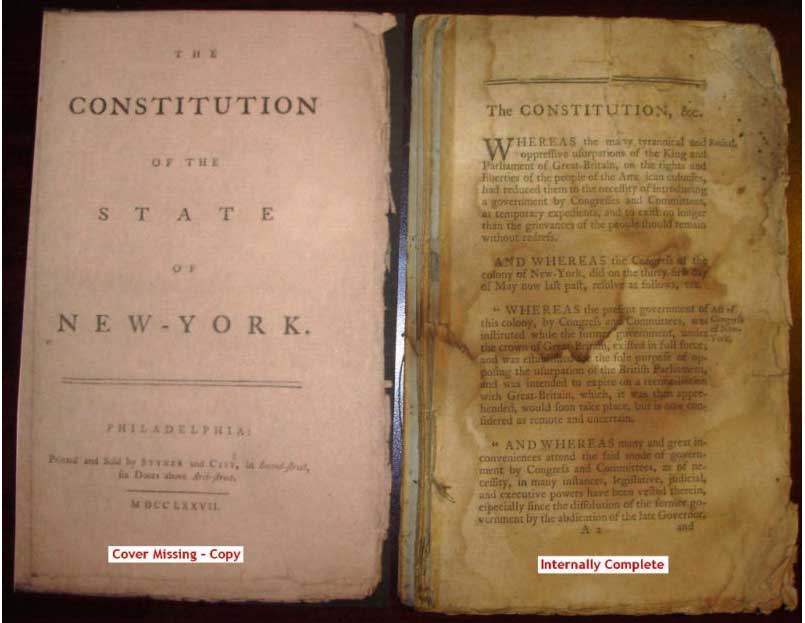eBay: Innocents Abroad
- by Bruce E. McKinney

Image 1 as it appeared on eBay
A recent article in Kingston, New York’s daily newspaper, the Freeman about an early [1777] copy of the New York State Constitution offered on eBay ignited the passions of members of the Ulster County Bar Association on short notice to come up with the money to bid for this locally important rarity. Kingston, the state’s first capital, was where the final draft was written and debated and where the constitution was ultimately adopted in April 1777. For the historically minded, particularly residents of the Hudson Valley, Kingston remains an important place. The opening and winning bid: $6,500.
The spirit motivating the purchase was magnificent but the copy, upon examination, disappointing, the cover in facsimile and many of its pages water stained. In a traditional auction, perhaps as close-by as the JMW Auction Galleries a few miles from the Ulster County Courthouse where the item’s purchasers plan to display it, it might have been estimated at $1,500 to $2,000. A much better [and complete] copy sold at auction in New York at Bloomsbury in 2007, at the top of the market, for $5,474 and prices generally (though not all) have since fallen 20%. Incomplete copies rarely do well and almost never better than complete ones. They also do better at traditional auction than they do on eBay so the recent sale is puzzling.
This pamphlet is absolutely rare although it is not the first printing of the New-York constitution in 1777. The first printing occurred months earlier in Fish-kill. Copies of this second printing [Philadelphia] are recorded three times in the 20th century and the OCLC, the database of library holdings, lists fourteen examples in institutions. In the AED we identify three sales over the years. Its probability of reappearance is 25+ years. On line, a clean and more complete copy is listed at $15,000. This is the same copy sold at auction in 2007. Incomplete copies are worth less, often much less and you don’t often see them in the auction records because auction houses turn them down. Partial copies often don’t sell well.